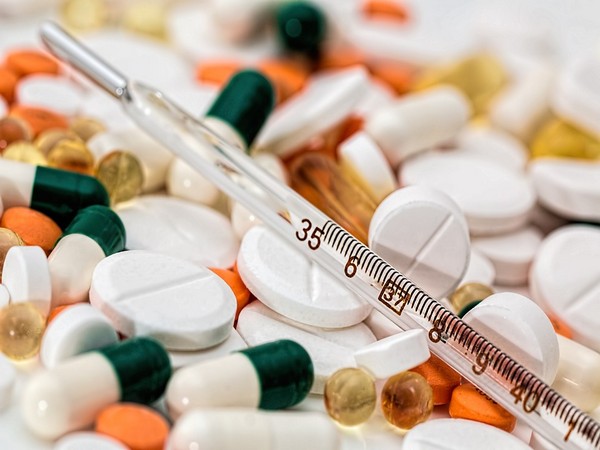New Delhi: India's pharmaceutical industry holds a prominent position in the global market, ranking third by volume and 14th by value.
This disparity between volume and value highlights India's role as a producer of affordable and high-quality generic medicines, making it the "pharmacy of the world."
With a market value of USD 50 billion in FY 2023-24, the sector is a crucial pillar of India's economy, contributing significantly to domestic and international healthcare needs.
India's pharmaceutical market is segmented into domestic consumption and exports.
In FY 2023-24, domestic consumption was valued at USD 23.5 billion, while exports stood at an impressive USD 26.5 billion.
These figures underscore India's ability to cater to a vast domestic market while maintaining a strong global presence.
The country exports pharmaceutical products to over 200 nations, including developed markets like the United States and Europe.
The National Accounts Statistics 2024, published by the Ministry of Statistics and Programme Implementation, provides further insight into the sector's economic contributions.
For FY 2022-23, the industry's total output, which includes pharmaceuticals, medicinal, and botanical products, was valued at Rs 4,56,246 crores at constant prices.
The value added was Rs 1,75,583 crores, reflecting the industry's efficiency and productivity.
Moreover, the sector employed 9,25,811 people during the same period, highlighting its role as a significant source of employment.
India is the largest provider of generic medicines globally, supplying 20 percent of the world's generic drug demand.
This dominance is fueled by India's cost-effective manufacturing capabilities, supported by economies of scale, skilled labour, and a robust supply chain.
Indian companies have also been at the forefront of producing active pharmaceutical ingredients (APIs), essential for drug manufacturing.
The country supplies nearly 50 percent of the world's vaccine demand, further cementing its reputation as a global pharmaceutical hub.
While India's pharmaceutical industry is historically known for its generics, there has been a growing emphasis on innovation and research.
Companies are investing in developing new chemical entities, biosimilars, and novel drug delivery systems.
The establishment of dedicated R&D centres and partnerships with global pharmaceutical firms has accelerated this shift.
In recent years, Indian firms have made significant strides in complex generics and biologics, which require advanced scientific expertise.
For instance, Indian companies have developed biosimilars for treating cancer, autoimmune disorders, and diabetes, providing affordable alternatives to expensive biologic therapies.
These innovations not only enhance healthcare access but also position India as a leader in cutting-edge pharmaceutical research.
The Indian government has played a pivotal role in fostering the growth of the pharmaceutical sector through various policy initiatives.
The Production Linked Incentive (PLI) scheme, introduced in 2020, aims to boost domestic manufacturing of APIs, drug intermediates, and medical devices.
This scheme reduces dependence on imports, particularly from China, and strengthens India's pharmaceutical supply chain.
Additionally, the establishment of Pharmaceutical Parks and Research and Innovation Centers has created an ecosystem conducive to innovation and growth.
Policies promoting intellectual property rights (IPR) and regulatory reforms have further enhanced the industry's global competitiveness.
The government has also focused on improving healthcare infrastructure and access to medicines through programs like Ayushman Bharat.
These initiatives have spurred domestic demand for affordable medicines, creating opportunities for pharmaceutical companies to expand their product portfolios.
The future of India's pharmaceutical industry is bright, with several growth drivers and opportunities on the horizon.
The global demand for affordable healthcare solutions is expected to rise, particularly in emerging markets.
India's expertise in producing cost-effective medicines positions it well to capitalise on this demand.
The industry's focus on biologics, biosimilars, and personalized medicine is another avenue for growth.
As global healthcare shifts towards precision medicine, Indian companies can leverage their R&D capabilities to develop innovative therapies.
Collaborations with global firms and academic institutions can further accelerate these efforts.
Digital transformation is also reshaping the pharmaceutical industry. The adoption of artificial intelligence, machine learning, and data analytics is improving drug discovery processes, optimising supply chains, and enhancing patient outcomes.
Indian companies are increasingly integrating these technologies into their operations, boosting efficiency and innovation.
A key factor behind India's pharmaceutical success is its skilled workforce.
The country produces a large number of pharmacy and life sciences graduates annually, ensuring a steady supply of talent.
Government initiatives to upskill workers and promote STEM education further strengthen this talent pool.
The industry's ability to attract and retain top talent will be critical in driving future growth.
Companies must invest in employee development programmes and foster a culture of innovation to remain competitive in a rapidly evolving global market.
As the industry grows, ensuring environmental sustainability is becoming increasingly important.
The pharmaceutical manufacturing process can have significant environmental impacts, including water pollution and greenhouse gas emissions. Indian companies are adopting green chemistry practices and investing in cleaner technologies to mitigate these effects.
The government has also introduced regulations to promote environmental compliance.
By embracing sustainable practices, the industry can align with global trends and meet the expectations of environmentally conscious consumers and investors.
India's pharmaceutical industry is a cornerstone of the nation's economy and a critical player in the global healthcare ecosystem. Its ability to produce affordable, high-quality medicines has transformed healthcare access worldwide, saving countless lives.
With a market value of USD 50 billion and a strong export performance, the sector continues to grow and evolve.
The industry's focus on innovation, supported by government initiatives and a skilled workforce, positions it for sustained growth.
As India charts its path towards becoming a $5 trillion economy, the pharmaceutical sector will play a pivotal role in achieving this vision. Its contributions to healthcare, economic growth, and employment make it a true beacon of India's potential on the global stage.
